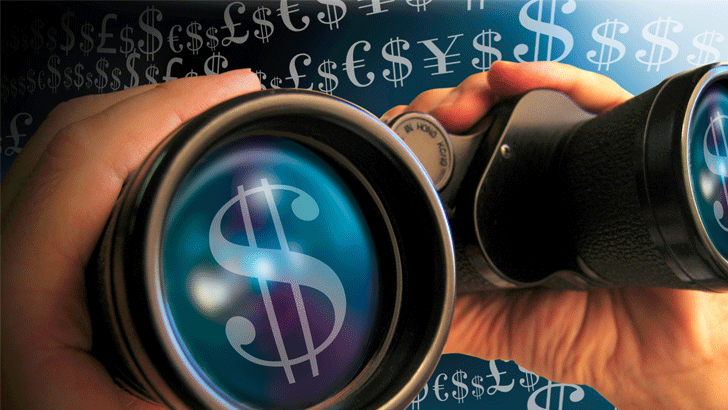How ‘the economy’ kills our better angels

One of the most successful con-jobs carried out by those who run the world is convincing the rest of us that there is something natural and inevitable about the way society is currently organised.
There are two important concepts they use to do this.
The first is the idea that the drivers of the capitalist economy – self-interested, dog-eat-dog competition, etc. – are inherent human characteristics. We are naturally selfish, greedy types who will clobber our neighbour over the head as soon as look at them.
That’s the “capitalism as humanity” side of the argument. The problem is that it fails to address a whole series of positive human characteristics – selflessness, affection, the willingness to sacrifice to improve the lot of others.
That’s where the “economy as omnipotent god” argument comes in.
It contains an element of truth. “The economy” stops some people treating others like human beings. It’s the killer of our better angels. Consider the situation of an individual business owner in relation to their family. It’s true a significant chunk of them are nasty brutes, even in the private sphere. But a lot of them are loving and generous partners, encouraging and kindly to their kids. Probably they would make all kinds of sacrifices to improve the lives of their family, and even their friends.
But all of that stops when they step out the door and head into the office. Say on the desk when they get in there are two proposals. One is a plan to heavily cut the price of a particular product in order to send a competitor out of business, so as to buy them out when they go bankrupt. The other is to sack 50 workers and then rehire others to do the same work on a casual basis, which will cut costs.
What motivates our business owner in considering these proposals? The negative consequences for the competitor? The wellbeing of employees? Of course not! The business owner will do what will make them most money. If confronted with the dire consequences their actions have for those workers thrown on the scrapheap they will shrug their shoulders and say, “that’s business”. And, from the point of view of a business owner, this is absolutely right. If they don’t make decisions on this basis, they will very quickly find that they are the one being bought-out by a more ruthless competitor.
This fundamentally anti-social nature of “business” is well recognised. It’s why there is a motto popular with capitalists big and small: “Never mix business with friendship”. Why? Because if you do, there is every chance that the human solidarity and compassion that is at the heart of friendship will either get in the way of, or be overcome by, the ruthless self-interest necessary to successfully do business.
Once you expand this basic idea out to the whole economy, you begin to see how some of the most absurd features of capitalist society are able to go unchallenged. A few years ago two figures were widely circulated on the internet. One was the number of homeless people in the United States. The other was the number of homes standing empty because they had been foreclosed during the financial crisis. There were more empty homes than homeless people to fill them! A crazy situation.
Imagine if that happened in a single household. One of its members lost their job, so couldn’t afford to contribute to the rent for a month. So their room is left empty and they have to sleep on the front porch. It would never happen.
But in the case of America and its empty houses, it simply wouldn’t have been profitable to let people who needed shelter live in them. Indeed, from the banks’ point of view, it would have been disastrous. An economic catastrophe!
We are taught to think that there is nothing we can do about any of this – the laws governing the way we collectively produce the things we need to survive are supposedly outside of human control.
This makes no sense. The capacity for collective, planned production is one of the key things that defines humanity as a species. Imagining the changes we want to make to the world before engaging in the activity needed to achieve it is what separates complex human society from that of the bees.
The problem under capitalism is that our ability to work out how to meet our collective needs has been taken from us, replaced by “market forces” that absolve the rich of moral responsibility for their actions. Of course they are responsible, however many times they say “that’s business”. That’s why if we want a different world we need to take them on. Regardless of how nice they are to their kids.